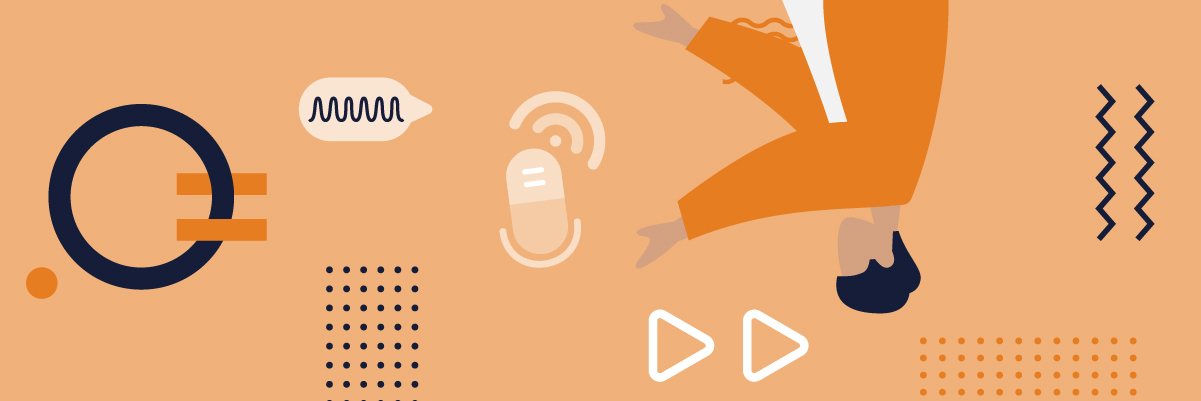From its analog beginnings to modern digital technology, audio tech, or audio technology has made great strides. The process is now so diversified, that each or a few steps require some specific knowledge and experience.
Doing a proper, professional audio recording might actually require the handling of more than one professional. Are you able to handle 3D or 8D audio yourself? What about spatial audio? If you are not a professional who is fully informed about the latest developments in audio tech, and you, say, need a perfectly conceived and recorded audio ad, you will probably need to enlist the services of more than one professional.
But, to do that you should probably be aware of at least some of the basics of audio technology. Even more so, you would need to know exactly what you need to be able to procure the services of one or even more audio tech specialists. This is due to the fact that there is a number of steps within the recording process that require specific knowledge and levels of specialization.
So, then, first of all, what is audio technology, or audio tech? As Learn.org defines it, the field of audio technology includes the maintenance and operation of sound equipment and the mechanics of sound engineering. Audio technology helps produce sound in the worlds of communication and entertainment.
To be able to operate in this field, prospective audio technicians “can select from many different fields and specializations within audio technology. Some areas include broadcasting and sound engineering, which can lead you to jobs in movie and theater productions, recording studios, and sports arenas, to name a few environments.” To get there, they have to complete a technical program related to audio technology.

How did audio technology develop?
Live events specialists GES tell us about the development of audio technology. They note that “the growth of the live music industry and movies pushed audio technology from its very humble beginnings into quite technically advanced systems that perform in the event industry. And certainly, audio systems have evolved far from being a simple PA at today’s events – they are engaging, immersive, and highly refined masterpieces that are played by audio artists around the world.”
The development of audio tech started in the late nineteenth century when D.E. Hughes invented his rudimentary carbon microphone in 1875. From then on, the development of audio tech can be split into four different development stages.
From that initial stage, when pieces and parts of audio tech were first invented, to 1925, when the so-called ‘Electrical Era’ began. The primary driver in that era was motion picture audio systems. This is also the time when the first electric guitars and amplifiers entered the stage.
This period lasted until 1945 when the new ‘Magnetic Era’ began. During this period inventors and specialists focused on the and shape of the sound. The idea was to make the quality of recorded sound equal to that of the sound that artists produce on stage.
In 1975, EMT came up with the first digital reverberation unit, and that marks the beginning of the current, ‘Digital era.’ “Digital audio is an audio signal or more simply, a sound signal that has been converted into digital form, where the sound wave of the audio signal is encoded as numerical samples in continuous sequence” (above).
When Dolby came up with a five-channel surround-sound scheme for home theater systems in 1990, it was a signal that audio tech is getting more and more diversified and sophisticated.
What does an audio technician do?
As audio technology got more technically complex, so did the job of the persons that have to handle such technology. As one affiliate of the Music Business Institute points out, the production of pitch-perfect sound is serious business, and people are willing to pay huge sums of money to get maximum sound fidelity and quality.
To get to such a high-standard level, audio technicians “play a critical role in keeping this industry alive.”
According to their definition, an audio technician is a person that specializes in bringing out the best from specific sound systems. “They are able to get this done via a wide variety of techniques. Audio technicians can do this by choosing the appropriate sound equipment for the type of space available. They can also do this by adjusting sound setting such as amplification and equalization. Audio technicians can also do this by blending different voices and instruments together to create the right sound.”
Audio technicians are also called audio engineers. But, essentially, here we are talking about two different jobs. “The audio technicians make sure that all the hardware for sound production is properly installed, and that all the equipment is at their appropriate settings. They are also responsible for locating any issues arising or may arise in the audio signal chains. In other words, they make sure everything goes according to plan, so the sound will come out great.”
The audio engineer, also known as a sound engineer, plays a slightly bigger role in producing sound. They are capable of performing all the tasks that a sound technician can do, but they have some added responsibilities. A sound engineer is involved in planning how the sound should be produced at a given event or setting. More than the technical aspect, sound engineers are now also involved in the creative aspect of producing sound. They often work with a team of audio technicians, guiding them towards producing flawless sounds for any occasion.
Add the role of the producer to the mix
Both, the audio technician and the audio engineer have a critical role to play in ensuring the optimal quality of sound. Sometimes, an audio technician and an audio engineer have to perform their duties in a studio. Then, in most cases, it is a producer that oversees their work.
The music producer has an additional creative role to make sure that the technical aspect of the recording(s) matches the artistic vision they as producers and above all artists have. If the recording has another aspect, such as advertising, they make sure the recording is up to the ideas and goals of the client.
But, let’s get back to the audio technician and his role. As mentioned, the audio technician makes sure that everything, from the hardware to the individual settings, is on point. “Whether it is recording a new song for that much-awaited album, or broadcasting one of your favorite podcasts, your music technician does all the dirty work to ensure everything sounds right” (above).
Audio technicians arrive at their job much earlier and leave it much later than all the others involved. It could be a live event, or it could be a recording studio. He has to be in action throughout the recording or a live event. If there is a technical problem, they have to fix it immediately, particularly if a live event is ongoing.
Obviously, this turns out to be quite a demanding job, both physically and mentally. For that reason, most audio tech professionals get good financial compensation. According to the above sources, “people in this industry earn in the vicinity of $40000 – $60000 a year. This depends on factors such as the number of events they cover. Also, the size and prestige of the events they participate in, and the type of clients that they handle. “

What qualities should a good audio tech specialist have?
There are some qualities that a good audio tech professional should have so that she/he can actually perform this quite demanding job. Four key such qualities are:
- Constant hard work and dedication. The constant development of audio technology demands that you constantly need to master things as an audio technician. Mistakes will happen, but a true professional has to stay committed to his craft. They need to keep up with new technology and gather as much experience as they can.
- Pay attention to every detail. Audio technicians have to be constantly alert when performing their job and pay attention even to minute details. They need to “listen to everything. From how artists play each individual sound to how they mix together.” If something goes wrong, they have to step in and fix it instantly.
- Being a true professional. It makes no difference whether an audio technician is working in the sound engineering industry, as music recording, live event coverage, or broadcasting. They constantly have to deliver their best and their results have to be consistent.
- Possess good ‘people skills.’ For an audio technician having good people skills is as important as their technical skills. They will be working with people from different walks of life. They have to establish connections both inside and outside the industry. This will also help them be a team player and work unselfishly.
Getting the right person for the audio tech job
For potential audio tech clients, it is always a pertinent question to be sure what kind of service they need. Is it the services of an audio technician, an audio engineer, or a producer they require? Depending on the job and their needs it could specifically. Be one of them, or actually all three.
If you specifically require audio tech services from a qualified audio technician, it is always good to have in mind what her/his job involves. Also what personal qualities you should look for.
In quite a number of cases, you will require audio tech services from freelancers. Audio tech freelancers are actually one of BunnyStudio’s specialties. We would be glad to put you in contact with qualified, carefully selected freelance audio technicians. Also, with specialists for any other jobs that might be connected. Feel free to contact us for those services too.










